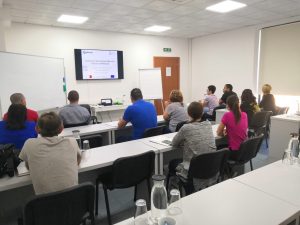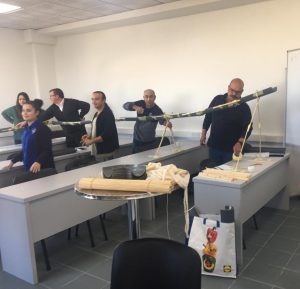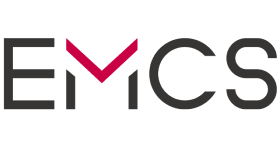Training Programmes for Healthcare Personnel
January 2019 - June 2022
NON-TECHNICAL SKILLS TRAINING FOR HEALTHCARE PERSONNEL (ESF 02.052)
The project is being funded through the European Social Fund and the Government of Malta.
EMCS has been contracted to deliver the NON-TECHNICAL SKILLS TRAINING FOR HEALTHCARE PERSONNEL project together with City of Glasgow college. The delivery of this training will result in an improvement in the internal communication and interaction between the staff working within the various healthcare departments, ultimately striving towards excellence in: patient safety, patient care and patient/relative satisfaction.
EMCS Ltd, as the lead partner, has a very long and successful history of delivering major projects which involve considerable logistical challenges.
The success of these projects has been made possible because it has a first class administrative set-up run by top people; it has first class professionals who are qualified in Project Management – PRINCE II; it has in place all the necessary procedures to ensure that all the checks and balances required to deliver a top service are also in place; and above everything else EMCS Ltd has a proud 30 year record during which it has never failed to successfully deliver a project whatever the size.
EMCS has been involved with the Ministry of Health, the Elderly and Community Care since 2006. It has carried out extensive work dealing with the restructuring as well as the upgrading of the function, focus, and purpose of the service providers.
The City of Glasgow College (COGC), is the largest College in Scotland with over 27,000 students learning across two super campuses. The College is top in the UK for World Skills and composite overall number one in the Scottish sector for success in student attainment in combined Further and Higher Education. The College, like Scotland as a nation, is a real melting pot of diversity, quality and excellence. Approximately 41% of students are from Glasgow, with the remainder from other parts of Scotland, the UK, and from many other countries across the world.
Aim of the Project
The main goal is to provide constant and consistent training for people in the health care sector. The training covers non-technical skills dealing with both the social dimension and the cognitive element. The training is suitable for qualified healthcare personnel with impeccable technical skills but who may not be as proficient when it comes to interacting with patients and people within their own teams.
Training being delivered
- Managing People Professionally
- Professional Interpersonal Skills with Patient and Relatives
The training and courses being offered ultimately underpin and drive all the work done with management and non-management employees. The approach is ‘strengths based’ and focuses on the positives within the organisation and the individual. It leads to a more rapid integration and application of skills while evaluating the behaviour and practice of the individual and the organisation.
Both courses are accredited and pegged at Level 5 MQF.
Accreditation and MQF level
EMCS Academy is licensed to deliver these programmes, accredited and comparable to MQF Level 5 (10 SCQF Credits at SCQF Level 8 (EQF/MQF Level 5)), awarded by the City of Glasgow College. As the provider of these courses City of Glasgow College is the Credit Rating Body.
These programmes have been recognised by the Malta Further & Higher Education Authority (MFHEA).
A Certificate of Attendance will be awarded to trainees who successfully attend 80% of all modules.
A Certificate of Achievement will be awarded to trainees who obtain a minimum pass in the relative assessment.
Total Learning Hours
Managing People Professionally Course (MPP) - 34 hours delivered over 9 sessions
Professional Interpersonal Skills with Patient and Relatives Programme (PISP) - 36 hours delivered over 9 sessions.
Learning & Assessment Procedures
The teaching and learning strategy utilises a range of student centred methods which promote active participation via role play and group work. A flexible blended approach to learning includes online activities and resources to enhance learning. Students are encouraged to adopt an enquiry-based approach to the subject matter. Learning and teaching strategies enhance student engagement, accessibility, flexibility and personalisation of the programme. All teaching materials and resources are available for students via the virtual learning environment.
The assessment for trainees undertaking the programmes will encompass 5 pieces of written work, submitted individually, which together will create a Reflective Portfolio. The assessment will be collected at the end of the course when the students would have covered all the material, covering all learning outcomes.
A trainee must obtain a pass in all 5 pieces of work for him/her to obtain an overall pass.
The Assessment is not mandatory.
Who is eligible to apply?
Managing People Professionally
Staff in a management position including (but not exclusively) Clinical Chairpersons, Consultants, Nursing Managers, Department Nursing Managers, Director Allied Health and respective Leads of each Health Profession and Director of Customer Care, Resident Specialists, Higher Specialist Trainees, Charge Nurses and Deputy Charge Nurses
Professional Interpersonal Skills with Patient and Relatives Programme
Staff not in a management position including (but not exclusively) Basic Specialist Trainees, Foundation Doctors, Nurses, Allied Health Professionals and Customer Care Officers
PROGRAMMES FOR SENIOR MANAGEMENT STAFF
Managing People Professionally Course (MPP) - 10 SCQF Credits at SCQF Level 8 (EQF/MQF Level 5)
A total of 34 hours delivered over 9 sessions.
This programme is designed to address and deliver the global skills needs within the healthcare sector for committed healthcare personnel with a strong focus on developing management competencies.
The assessment for this programme is made up of 5 pieces of written work which together will create a Reflective Portfolio. This is to be submitted at the end of the course.
Modules
1. Management and Leadership
- Quality improvement focused leadership;
- Leadership and management skills within the context of healthcare;
- Leadership and management theories; and
- Collaborative leadership
Assessment 1: 20% of final grade
2. Motivating the team and team building dynamics
- Internal and external motivational factors
- Motivational theories; Maslow, Expectancy, Hertzberg
- The role of positive feedback in motivation
- The role of resource and capacity management in motivation
- Organisational transparency, objectives, activities and staff opportunities
Assessment 2: 20% of final grade
3. Communication Dynamics with team, patients and relatives
- Communication theory
- Modes of communication
- Communication and power
- Patient and relatives engagement and feedback
- Assertiveness
- Multidisciplinary communication
- Record keeping
4. Managing Conflict and team building dynamics
- Communication observation activity
- Conflict and alternate distribute resolution
- Conflict styles and negotiation strategies
- Moving towards a positive outcome
- Effective communication
- Persuading and influencing others
5. Quality improvement within healthcare a global perspective
- 10 determinants of service quality
- European Foundation for Quality Management (EFQM) excellence model
- Using guidelines and standards to improve practice
- Gathering patient experiences, prompt cards, surveys, comment cards, patient stories
- Managing complaints positively
6. Managing Team Performance
- Mentorship and supervision
- Performance management
- Staff appraisal, objective setting, SMART goals
- Staff training and development
- Skill mix
- Multidisciplinary team working and communication
Assessment 3: 20% of final grade
7. Managing Effective Team Meetings
- Diversity of staff meetings
- Ground rules, purpose and format
- Planning and preparation
- Agenda setting
- Role of the Chair
- Managing challenging situations
- Timekeeping
- Action Planning, designating action points
- Meeting minutes and dissemination
- Frequency of meetings
Assessment 4: 20% of final grade
8. Organisational Learning
- Using organisational evidence and intelligence to improve practice
- Collating and using patient feedback
- Collating and using staff experience data
- Disseminating examples of good practice
- Using tools to improve organisational performance, root cause analysis, PDSA, trigger tools, project roadmaps.
- Creating a learning and improvement culture
Assessment 5: 20% of final grade
9. Team building
- Ice breaker activity
- Values & beliefs
- Ideal organisation
- Personal goals
- Organisational goals
- Team goals
- Effective teams
- Agree roles and responsibilities
This is a 4 hour Master Class Workshop on Managing People Professionally
Delivered by a World Class Speaker to Senior Level Management within a Healthcare environment. The objective of this Workshop is to gain key skills, best practices and behaviours of effective managers so as to be proficient in applying them to improve individual, team and departmental performance, with the aim to offer a service of high quality to patients and relatives.
- One-to-one Coaching sessions
Senior Level managers will be offered 1 to1 coaching sessions which will focus on practical situations directly related to a Healthcare environment where the person being coached, may need guidance on how to manage the team effectively and improve its performance with the main aim of offering a professional service to patients and relatives.
PROGRAMME FOR STAFF in a NON-MANAGERIAL POSITION
Professional Interpersonal Skills with Patient and Relatives Programme (PISP) - 10 SCQF Credits at SCQF Level 8 (EQF/MQF Level 5)
A total of 36 hours delivered over 9 sessions
The programme is designed with the overall aim of preparing healthcare professionals for competent professional interpersonal interactions. It should enable practitioners to function with greater confidence and competence and communicate safely and effectively with clients, relatives and other professionals in more challenging and complex situations.
The assessment for this programme is made up of 5 pieces of written work which together will create a Reflective Portfolio. This is to be submitted at the end of the course.
Modules
1.Interpersonal Skills and Professionalism in Healthcare
- Interpersonal skills and qualities
- Self-assessment interpersonal style, skills and qualities (online activity)
- Self-awareness
- Patient’s rights and active participation in care
- Professionalism and Interpersonal skills in Healthcare
2. Effective Communication with Patients and Relatives
- Theories of communication
- Communicating with empathy and compassion
- Barriers to communication
- Effective management of communication barriers
- Conflict resolution techniques
- Assertiveness skills assessment
- Giving and receiving feedback
- Interprofessional communication
3. Managing Yourself in a Challenging Healthcare Environment (Part 1 & 2)
- Patient Interactions : A Self-Assessment
- A Patients Story
- Patient Centred Care
- Active Patient Participation
- Patient Empowerment
- Conflict Resolution
- Ten determinants of Service Quality
Assessment 1: 20% of final grade
4. Employee-Patient/Relatives Relationships (Part 1 & 2)
- Time management concept and self-assessment
- Planning and prioritising and re-prioritising
- The 4 D’s in management
- Delegation
- Use of technology in time management
- Adapting to changes, flexibility
Assessment 2: 20% of final grade
5. Managing Yourself in a Challenging Healthcare Environment (Part 2)
- Stress at work
- Theories of stress
- The effects of stress on the individual, family and organisation
- Internal and external stress factors
- Managing stress
6. Employee-Patient/Relatives Relationships (Part 1)
- Equality and diversity in a multicultural care environment
- Communicating with people with special needs, cognitive, sensory, language
- The therapeutic relationship
- Behaviour management communication techniques
- Environmental barriers to effective communication
- Augmentative and alternate communication
Assessment 3: 20% of final grade
7. Employee-Patient/Relatives Relationships (Part 2)
- Communicating with empathy and compassion
- Breaking bad news
- Dealing with complaints effectively
- Barriers to effective communication: stress, distress, pain fear, anxiety
- Professional telephone techniques
- Managing and closing communication
Assessment 4: 20% of final grade
8. Teamwork
- Values and principles underpinning working with others
- Belbin and Tuckman, team formation, effectiveness
- Team roles, self-assessment - Belbin
- Skills for collaborative working
- Team working impact on patient quality of care
- Challenges to collaborative working
Assessment 5: 20% of final grade
9. Team building
- Ice breaker activity
- Values & beliefs
- Ideal organisation
- Personal goals
- Organisational goals
- Team goals
- Effective teams
- Agree roles and responsibilities
LOCATION
EMCS Training Academy, Level 2, Blu Building, Qormi Road, Luqa
TRANSPORT
EMCS provides free transport to and from the training venue. The transport needs to be pre-booked at least 24hrs before the scheduled training session. Book your transport by sending an email to transportntst.mfh@gov.mt
Apply for this course by clicking on the following link: https://maltahealthtraining.com/
Contact
Sara Mc Guire
Manager (EMCS Tax & Advisory)





